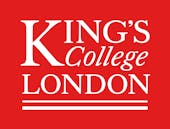Dr Stacey Gutkowski is a Senior Lecturer in Conflict Studies and Co-Director of the Centre for the Study of Divided Societies at King’s College London. Prior to joining King’s she was an Economic and Social Research Council (ESRC) Postdoctoral Researcher in the Department of International Relations, University of Sussex; a Visiting Scholar at the Center for the Study of Religion and Conflict, Arizona State University; and a Research Associate with the Religion and Ethics in the Making of War and Peace Programme, University of Edinburgh.
Stacey holds a PhD in International Studies from the University of Cambridge, an MPhil in International Peace Studies from Trinity College Dublin and a BA in Philosophy (magna cum laude, Phi Beta Kappa) from Wellesley College.
She is the author of two research monographs, Religion, War and Israel’s Secular Millennials: Being Reasonable? (Manchester University Press, 2020) and Secular War: Myths of Religion, Politics and Violence (I.B. Tauris, 2013), as well as articles and book chapters on the relationships among politics, security, religion and secularism in Jordan, Israel/Palestine, Lebanon, Iraq, Egypt, Afghanistan, the United States, and the United Kingdom. She has been co-director of the Nonreligion and Secularity Research Network (www.nsrn.net) since 2008, and she is co-editor of the book series Religion and Its Others: Studies in Religion, Nonreligion and Secularity (DeGruyter). She is on the Academic Advisory Board of the Cambridge Centre for Palestine Studies.
Stacey's research is at the crossroads of Middle Eastern Studies, political sociology, religious studies and critical security studies. Her research interrogates the various relationships between war, peace, religion and the secular. Her current research focuses on the following: 1) theorizing intersections between emotion, violence and the secular; 2) post-war spirituality and self-making in the Middle East; 3) interreligious pluralism among Syrian refugees and their hosts in Jordan and Lebanon; 4) interreligious pluralism and youth interfaith peacebuilding in the Middle East and Northern Ireland; 5) interrogating moderation as a political category.
Experience
-
–presentSenior Lecturer in Conflict Studies and Co-Director, Centre for the Study of Divided Societies, King's College London
- Article Feed
- Joined


